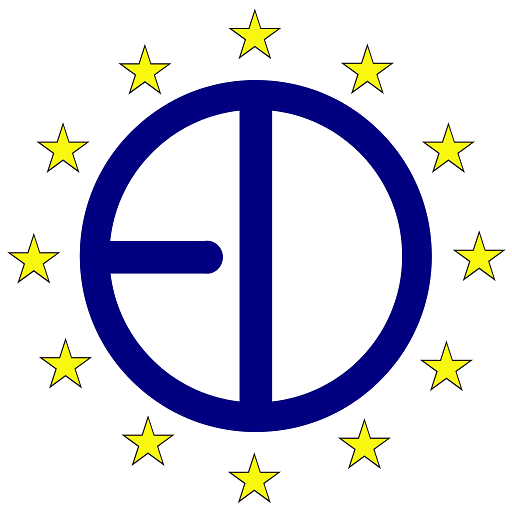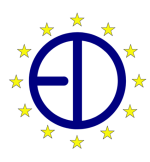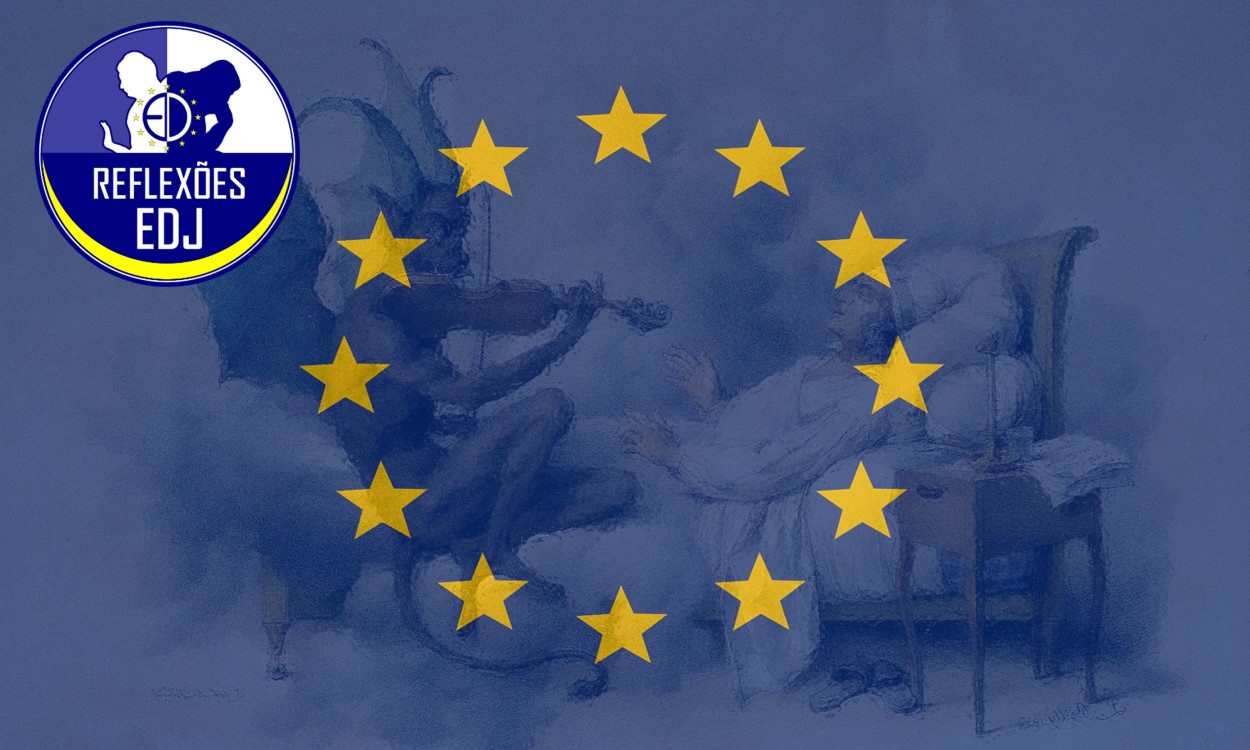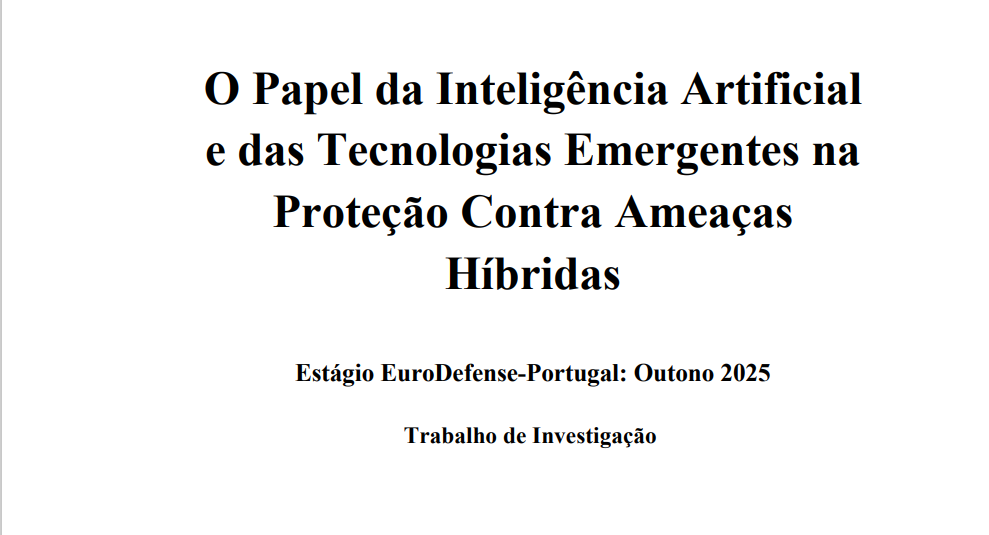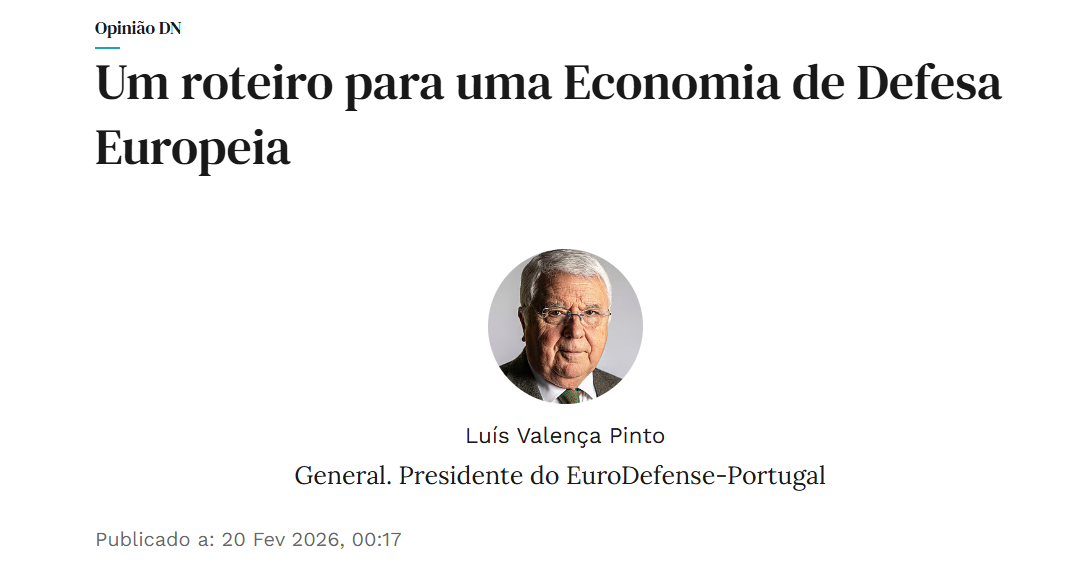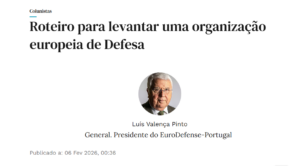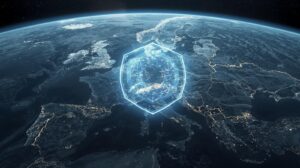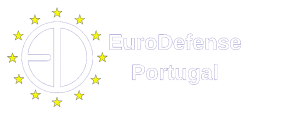The return of war to Europe as a result of Russia’s invasion of Ukraine has caused a well-known disruption in the European energy system. As a consequence, trends evident in the European Green Deal have been accelerated. The European Commission announced REPower EU which, in line with the latter commitments, aims to save energy, diversify energy supply chains and accelerate investment in renewable energies.
Accordingly, it is a fact that fewer Russian energy imports are being bought but the divorce is not done. For example, data from Eurostat for the first quarter of 2024 indicates that EU imports of gas, liquefied natural gas and oil fell by around 10.4 per cent compared to the same period in 2023. With regard to energy suppliers in the same period, almost half of natural gas in gaseous form was imported from Norway (46.6 per cent), Algeria (19.7 per cent), and only then from Russia (17.3 per cent). Before the invasion of Ukraine, Russian imports accounted for around 40 per cent. In liquefied natural gas, the United States supplies almost half of imports (47.4 per cent), followed by Russia (17.7 per cent). Also, in the same period, most European imports of EU petroleum oils came from the US (17.1 per cent), Norway (13.6 per cent) and Kazakhstan (10.9 per cent).
Establishing an energetic system that depends more and more on self-sustainability through the dynamisation of the single market is – for a continent like Europe which imports 90% of the oil and gas that consumes – a solid geopolitical choice. However, this is not achievable in the short term. Hence, diversification of imports has been paramount. In fact, the problem is that the diversification of alternatives in terms of imports from other countries does not guarantee absolute freedom from geopolitical risks, nor does it guarantee independence from certain states which, pressured by domestic issues, can exploit European shortcomings.
Europe is not new to the fact that when energy is bought, consideration must be given to how the money will be used later. Russia is a clear example, but so is Qatar. However, on the immediate level, it is crucial to realise that the diversification in European demand for gas and oil will lead exporting countries to increase production and invest more in infrastructure, which will potentially complicate their own transition. This is particularly relevant in light of an emergent world that may have to rely on fossil fuels to foster its subsequent development. And, considering the geopolitical environment of the first half of the century, Europe has no moral ground to stand on. Nor can it afford to act patronisingly.
Europe is also facing another well-known delicate situation when it comes to the relationship with China. As mentioned, achieving the goals of self-sustainability and energy transition will turn out to be a solid geopolitical advantage in the long run, considering that Europe needs urgently to ensure its own security. However, the geopolitical environment, the increased fragmentation, the spreading of trade barriers, the rise of protectionism and the lack of consensus can cause additional disruptions in the international system, which will not favour Europe’s goals.
The energy transition requires an increase in global trade in hydrogen and ammonia, as well as demands Europe to access rare earths and other critical raw materials in order to sustain the deployment of new infrastructures and new storage systems. In this regard, the relationship with China is one with serious implications for the EU’s green agenda. China’s significant dominance of the supply chains for critical raw materials – both in extraction and processing -, makes it an extremely important player in the sector.
Nevertheless, geopolitical considerations both do not allow a straightforward relationship nor a total de-coupling with China. For instance, just recently, the European Commission has taken steps to address trade imbalances and concerns over Chinese subsidies in the EV sector. In response to complaints from European businesses, the EU launched an anti-subsidy investigation into BYD, Geely, and SAIC, which are perceived to benefit from unfair state support.
To counterbalance energy deficiencies, it is crucial to keep furthering the commercial relations with countries like Australia and Chile, at least when it comes to lithium and cobalt. Meanwhile, under the Critical Raw Materials Act, which partly anticipates this problem, there is also a desire to promote domestic production through mining and refining as a way of minimising risks. Now this is a point that is often neglected. Green energy is not just about harnessing the power of the sun, water and wind. Indeed, strong and extensive mining activities can create new jobs, but they also cause exactly what they are intended to prevent: loss of biodiversity, soil erosion, habitat destruction etc. To make things better, it’s all a race against time. The success of the Critical Raw Materials Act depends on technological advances, as diversification takes time and global competition for critical materials is intense.
The green agenda will remain one of the EU’s main priorities, as it is not only necessary but also useful both for the competitiveness of the European market and for its geopolitical and economic security. However, the question is how can the EU manage to move assertively in such a scenario where one of its main competitors has what it needs and its main partner – especially if there is a Trump-Vance victory with their business-oriented philosophy – will presumably continue prioritising the production and export of American gas and oil? It cannot. That is to say the EU will have to move forward through trial and error, anticipating what it can, working on what is feasible, addressing problems as they arise.
19th September, 2024
André Craveiro
EuroDefense Jovem Portugal
Referências Bibliográficas
ECO. Portugal na locomotiva da frente numa Europa que recupera a duas velocidades. SAPO, 2023. Disponível em: https://eco.sapo.pt. Acesso em: 9 set. 2024.
FINANCIAL TIMES. EU faces decline without market reform, report warns. Financial Times, 2023. Disponível em: https://www.ft.com/content/ad287f49-4292-4c4a-9b3d-8e46f210c21c. Acesso em: 9 set. 2024.
TAGLIAPIETRA, Simone. The European Union-Russia energy divorce: state of play. Bruegel, 2023. Disponível em: https://www.bruegel.org/analysis/european-union-russia-energy-divorce-state-play. Acesso em: 9 set. 2024.
LUSA. UE reduz importações de energia em 10,4% no primeiro trimestre. ECO, 2024. Disponível em: https://eco.sapo.pt/2024/07/01/ue-reduz-importacoes-de-energia-em-104-no-primeiro-trimestre/. Acesso em: 9 set. 2024.
GIS REPORTS. Trump, Vance and Europe. GIS Reports Online, 2023. Disponível em: https://www.gisreportsonline.com/r/trump-vance-europe/. Acesso em: 9 set. 2024.
GROSS, S., STELZENMULLER, C. O atribulado divórcio do gás russo na Europa. Fundação Francisco Manuel dos Santos, 2023. Disponível em: https://ffms.pt/pt-pt/estudos/policy-papers/o-atribulado-divorcio-do-gas-russo-na-europa. Acesso em: 9 set. 2024.
SIDDI, Marco. Europe’s Energy Dilemma: War and the Green Transition. Current History, v. 122(842), p. 83-88, mar. 2023. DOI 10.1525/curh.2023.122.842.83
Europe’s Faustian bargains
The return of war to Europe as a result of Russia’s invasion of Ukraine has caused a well-known disruption in the European energy system. As a consequence, trends evident in the European Green Deal have been accelerated. The European Commission announced REPower EU which, in line with the latter commitments, aims to save energy, diversify energy supply chains and accelerate investment in renewable energies.
Accordingly, it is a fact that fewer Russian energy imports are being bought but the divorce is not done. For example, data from Eurostat for the first quarter of 2024 indicates that EU imports of gas, liquefied natural gas and oil fell by around 10.4 per cent compared to the same period in 2023. With regard to energy suppliers in the same period, almost half of natural gas in gaseous form was imported from Norway (46.6 per cent), Algeria (19.7 per cent), and only then from Russia (17.3 per cent). Before the invasion of Ukraine, Russian imports accounted for around 40 per cent. In liquefied natural gas, the United States supplies almost half of imports (47.4 per cent), followed by Russia (17.7 per cent). Also, in the same period, most European imports of EU petroleum oils came from the US (17.1 per cent), Norway (13.6 per cent) and Kazakhstan (10.9 per cent).
Establishing an energetic system that depends more and more on self-sustainability through the dynamisation of the single market is – for a continent like Europe which imports 90% of the oil and gas that consumes – a solid geopolitical choice. However, this is not achievable in the short term. Hence, diversification of imports has been paramount. In fact, the problem is that the diversification of alternatives in terms of imports from other countries does not guarantee absolute freedom from geopolitical risks, nor does it guarantee independence from certain states which, pressured by domestic issues, can exploit European shortcomings.
Europe is not new to the fact that when energy is bought, consideration must be given to how the money will be used later. Russia is a clear example, but so is Qatar. However, on the immediate level, it is crucial to realise that the diversification in European demand for gas and oil will lead exporting countries to increase production and invest more in infrastructure, which will potentially complicate their own transition. This is particularly relevant in light of an emergent world that may have to rely on fossil fuels to foster its subsequent development. And, considering the geopolitical environment of the first half of the century, Europe has no moral ground to stand on. Nor can it afford to act patronisingly.
Europe is also facing another well-known delicate situation when it comes to the relationship with China. As mentioned, achieving the goals of self-sustainability and energy transition will turn out to be a solid geopolitical advantage in the long run, considering that Europe needs urgently to ensure its own security. However, the geopolitical environment, the increased fragmentation, the spreading of trade barriers, the rise of protectionism and the lack of consensus can cause additional disruptions in the international system, which will not favour Europe’s goals.
The energy transition requires an increase in global trade in hydrogen and ammonia, as well as demands Europe to access rare earths and other critical raw materials in order to sustain the deployment of new infrastructures and new storage systems. In this regard, the relationship with China is one with serious implications for the EU’s green agenda. China’s significant dominance of the supply chains for critical raw materials – both in extraction and processing -, makes it an extremely important player in the sector.
Nevertheless, geopolitical considerations both do not allow a straightforward relationship nor a total de-coupling with China. For instance, just recently, the European Commission has taken steps to address trade imbalances and concerns over Chinese subsidies in the EV sector. In response to complaints from European businesses, the EU launched an anti-subsidy investigation into BYD, Geely, and SAIC, which are perceived to benefit from unfair state support.
To counterbalance energy deficiencies, it is crucial to keep furthering the commercial relations with countries like Australia and Chile, at least when it comes to lithium and cobalt. Meanwhile, under the Critical Raw Materials Act, which partly anticipates this problem, there is also a desire to promote domestic production through mining and refining as a way of minimising risks. Now this is a point that is often neglected. Green energy is not just about harnessing the power of the sun, water and wind. Indeed, strong and extensive mining activities can create new jobs, but they also cause exactly what they are intended to prevent: loss of biodiversity, soil erosion, habitat destruction etc. To make things better, it’s all a race against time. The success of the Critical Raw Materials Act depends on technological advances, as diversification takes time and global competition for critical materials is intense.
The green agenda will remain one of the EU’s main priorities, as it is not only necessary but also useful both for the competitiveness of the European market and for its geopolitical and economic security. However, the question is how can the EU manage to move assertively in such a scenario where one of its main competitors has what it needs and its main partner – especially if there is a Trump-Vance victory with their business-oriented philosophy – will presumably continue prioritising the production and export of American gas and oil? It cannot. That is to say the EU will have to move forward through trial and error, anticipating what it can, working on what is feasible, addressing problems as they arise.
André Craveiro
Referências bibliográficas
ECO. Portugal na locomotiva da frente numa Europa que recupera a duas velocidades. SAPO, 2023. Disponível em: https://eco.sapo.pt. Acesso em: 9 set. 2024.
FINANCIAL TIMES. EU faces decline without market reform, report warns. Financial Times, 2023. Disponível em: https://www.ft.com/content/ad287f49-4292-4c4a-9b3d-8e46f210c21c. Acesso em: 9 set. 2024.
TAGLIAPIETRA, Simone. The European Union-Russia energy divorce: state of play. Bruegel, 2023. Disponível em: https://www.bruegel.org/analysis/european-union-russia-energy-divorce-state-play. Acesso em: 9 set. 2024.
LUSA. UE reduz importações de energia em 10,4% no primeiro trimestre. ECO, 2024. Disponível em: https://eco.sapo.pt/2024/07/01/ue-reduz-importacoes-de-energia-em-104-no-primeiro-trimestre/. Acesso em: 9 set. 2024.
GIS REPORTS. Trump, Vance and Europe. GIS Reports Online, 2023. Disponível em: https://www.gisreportsonline.com/r/trump-vance-europe/. Acesso em: 9 set. 2024.
GROSS, S., STELZENMULLER, C. O atribulado divórcio do gás russo na Europa. Fundação Francisco Manuel dos Santos, 2023. Disponível em: https://ffms.pt/pt-pt/estudos/policy-papers/o-atribulado-divorcio-do-gas-russo-na-europa. Acesso em: 9 set. 2024.
SIDDI, Marco. Europe’s Energy Dilemma: War and the Green Transition. Current History, v. 122(842), p. 83-88, mar. 2023. DOI 10.1525/curh.2023.122.842.83
NOTA:
- As opiniões livremente expressas nas publicações da EuroDefense-Portugal vinculam apenas os seus autores, não podendo ser vistas como refletindo uma posição oficial do Centro de Estudos EuroDefense-Portugal.
- Os elementos de audiovisual são meramente ilustrativos, podendo não existir ligação direta com o texto.
